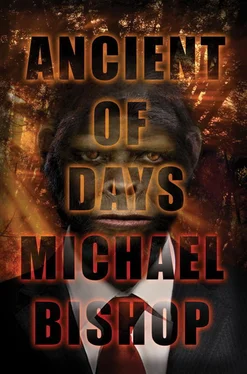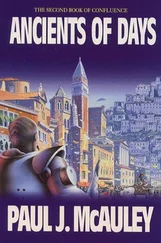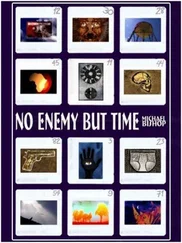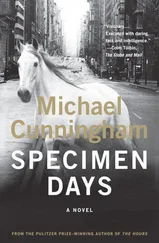I spent Wednesday with the Montarazes, most of which we devoted to a tour of the High Museum on Peachtree Street. On Thursday, I returned to Beulah Fork.
Business continued to boom. People came in and went out, and so did money. I yelled at Livia George, she glared at me in insulted contempt, the dristles of winter gave way to the hurricanes of spring, soldiers of twenty or more nations died in almost all the senseless ways it is possible to die, dining-room help arrived and departed, and the president of the United States asked Congress to okay funds for a defense force of mutant giant pandas with which to protect the Aleutian Islands from Soviet invasion. Something like that. I was too busy to pay more than passing heed to the news.
At last the summons came. I got to Atlanta on the day after Adam had undergone the six-hour surgical procedure designed to give him the ability to speak. I would have been there for the operation itself but RuthClaire delayed asking me to come until the next morning, when it was already clear that her husband was out of danger. Whether all the tinkering would have the desired effect remained a question of prime concern, but not whether he would live or die. All this, defying the possibility of a tap, RuthClaire had told me in a phone call—but when I reached Emory Hospital, I was still angry about not having had the chance to sit with her during the surgery.
RuthClaire met me in a corridor below the pagoda-like parking tower where I had left my car. She wore a white blouse with scrollish cutouts in the collar, a seersucker skirt, and a pair of Italian sandals. She had a baby-carrier on her back, but it was empty because Tiny Paul, not yet nine months old, stood at her knee gripping one of her fingers with a tentative hand.
I could not believe it. T. P., whom I’d last seen zonked in a bassinet, was walking. He wore navy-blue shorts, a powder-blue shirt, and a pair of minuscule tennis shoes with racing chevrons. There was nothing even remotely gorillaish about his appearance today. No baby fat, no leathery sheen on his forehead. As I neared him and his mother along the corridor, he eyed me with the solemnity of a pint-sized state legislator.
“Don’t start in.” RuthClaire raised her free hand in warning.
“Everything’s fine.” I knelt in front of the kid to give him a gentle poke in the breadbasket. His gums pulled away from his teeth in a… well, a smarl , which is to say a smile and a snarl so perfectly meshed that they are identical. “He’s really grown. How long’s he been walking?”
“Since April, Paul. He’s a dynamo. All the activity has slimmed him down.”
“Walking at five months? Does he talk, too?”
That one earned me a rebuke. “His dad’s just had surgery to allow him to speak, and you’re asking me if our son’s talking yet? Do you want to make me cry?”
“RuthClaire—”
“Some children don’t talk until they’re two or more. It’s nothing to fret about.”
“Listen, I’m sorry. I didn’t mean to—”
“Come on,” she said angrily. “Let’s go see Adam.”
We averted an argument by walking to the elevators at the far end of the echoing corridor. T. P. kept up with us with an effortless trot, like an Ethiopian conscript of the 1940s jogging to the front. Upstairs, the nurses at the nurses’ station got our names and let us proceed down the hall to Adam’s room. It was a long walk. I used it to start to berate my ex for not calling me sooner, but she cut me off with a recitation of all the people who’d already come by to see her and lend moral support.
“You don’t need me anymore, do you?”
“Give that man a cigar. He finally digs the full implications of our divorce.”
“Why call me at all, then?”
“Adam thought you should be here. He’s trying to be the alpha-male of our household, appointing a lieutenant until he’s well enough to return.” Like an invisible tide of warm honey, a mellifluous laugh came rolling out of Adam’s room.
“What the hell was that? Surely, not Adam?”
“We’ve got a visitor. He stopped by yesterday, too. I’d’ve run him off if Adam hadn’t asked me before the operation to let the clown come calling.” RuthClaire set Tiny Paul down, and the kid trotted into his father’s room. “Come see.”
We entered the room after the precocious toddler, who was already in the male visitor’s arms. Adam lay on the bed beside them, his mummy-wrapped face tilted toward the door. A pole-mounted IV bottle dripped glucose into his bloodstream.
“Paul Loyd,” RuthClaire said, “meet the Right Reverend Dwight McElroy.”
Most television evangelists, I had long ago decided, looked like affluent mobile-home salesmen. An eye tic or an unruly forelock of pomaded hair was the sole outward manifestation of the emotional kink that kept their motors going. But McElroy, whom I’d watched for only a few fascinated weeks on his syndicated Great Gospel Giveaway , did not fit this mold. Prematurely gray (or post-pubescently silver), he had the aristocratic mien of a European count. At the same time, though, I had no trouble dressing him out in basketball togs and putting him at the power-forward position for a team like the Celtics. He was too old for that, of course, but appeared in great shape—lean, muscular, alert, and, in spite of his lank (not blown-dry) silver hair, facially collegiate. Carrying T. P., the leader of the rigorously Protestant but otherwise scrupulously nondenominational Greater Christian Constituency of America, Inc., strode toward me with his hand out. When he smiled, the count gave way to the suggestion of a farm kid come to the big city in a borrowed suit.
“Just call me Happy. None of this Right Reverend business, now. Sometimes it flat wears me out, Paul.”
“Me, too,” RuthClaire said.
I shook the proffered hand. “I’m not a fan, Happy. Forgive me for saying so.”
“I’m not a fisher of fans, Paul. I’m a fisher of souls.”
“Any bites?”
“They’re always biting, Paul, always just waiting to be fed.” (I knew the feeling.) “That’s why I try to keep my lines in the water.”
“And your hooks out?”
He knew he was being baited (as the Elizabethans baited bears, not as a southern angler readied a worm for skewering), but he neither laughed foolishly nor surrendered outright to my barb. He gave me a smile and bounced T. P. lightly against his flank. “And my hooks out,” he echoed me. “The kind that don’t tear, that lift one up into the sun.” He smiled again, as if to illustrate his meaning with a show of teeth.
I turned to RuthClaire. What was this joker doing here? A little more than a year ago, he’d condemned her from the pulpit as a twentieth-century sodomite, speaking with great force on two matters about which he undoubtedly remained acutely ignorant, evolutionary theory and the exact nature of RuthClaire and Adam’s relationship. Did the man have no shame? I stated my objections to his presence and asked him if he did.
“I don’t feel out of place here, Paul. It’s not possible for me to hate the sinner as much as I do the sin. In fact, I don’t hate the sinner at all. I love him.”
Adam’s eyes pleaded with RuthClaire to forgive their visitor—this rich, famous fool for Christ—the foolish words that had wounded her so deeply a year ago. T. P. had begun to squirm. McElroy set him down.
Then he said, “They say your husband’s a habiline , Mrs. Montaraz. What is that, for mercy’s sake? From three states away, ma’am, I supposed everybody was making a fuss over some naked monkey out of some hard-to-get-to foreign jungle. ‘A surviving representative of a prehuman species,’ that one fella said. Well, I didn’t believe that then, and I don’t believe it now.”
Читать дальше












